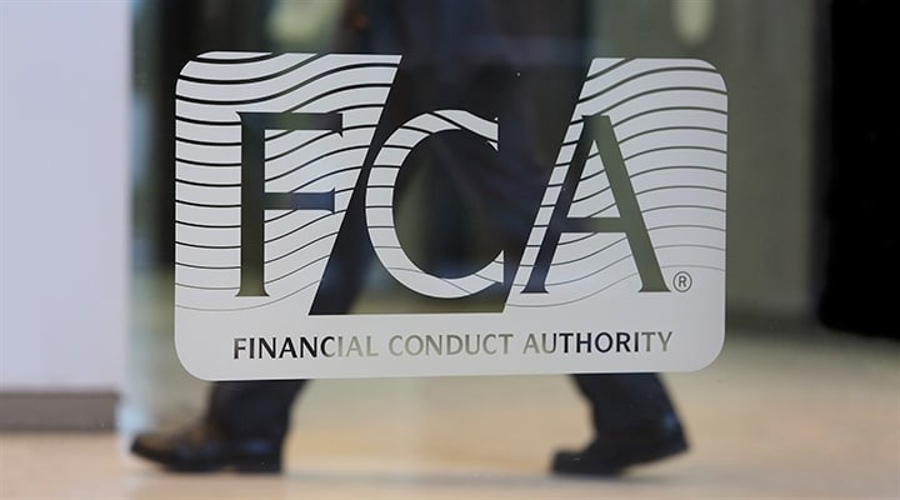
Last year,
the UK’s financial market regulator, the Financial Conduct Authority (FCA ),
accelerated the process of revoking licenses from financial firms that were not
utilizing them. The watchdog claimed this is to protect consumers from the
increased risks associated with the operations of such companies. According to
the latest data, the institution has exercised this right over a thousand
times, affecting the operations of 762 companies.
Financial
News approached the
FCA with a request under the Freedom of Information Act on how often the
regulator used its rights to suspend the licenses of companies that do not
carry out operations arising from their authorizations. The FCA
informed that, as of 16 October 2023, it had influenced the activities of 1,100
individual business lines. Over 300 entities either applied independently to
cancel their licenses or had them removed by the regulator.
In the
past, the FCA could cancel a company’s license within 12 months of sending its
first warning, but now it can do so in 28 days.
“Businesses
are required to prove they are carrying out the regulated activities they are
permitted to or face losing this permission,” the UK market watchdog
stated a year ago.
However, how can a licensed firm, even one that does not use its licenses, harm consumers?
FCA Cares for Consumer
Protection
The
regulator believes that the updated power will strengthen consumer protection
by reducing the risks of misunderstanding or misleading information about
financial risks. Moreover, it will expedite the regulatory actions in the case of
inappropriate use of permission.
“Businesses with permissions they don’t
need or use risk misleading consumers,” said Mark Steward, the Executive
Director of Enforcement and Market Oversight at the FCA.
It turns
out that some regulated firms use their licenses to attract investors to
products that are not regulated, thereby misleading them. This was the case
with London Capital and Finance, whose collapse cast doubt on the future of
£236 million belonging to investors.
The FCA is
also actively working in the field of promoting services and products of
financial firms. In Q3, the FCA reviewed 1,211 financial promotions, with 75%
being part of proactive monitoring.
Last year,
the UK’s financial market regulator, the Financial Conduct Authority (FCA ),
accelerated the process of revoking licenses from financial firms that were not
utilizing them. The watchdog claimed this is to protect consumers from the
increased risks associated with the operations of such companies. According to
the latest data, the institution has exercised this right over a thousand
times, affecting the operations of 762 companies.
Financial
News approached the
FCA with a request under the Freedom of Information Act on how often the
regulator used its rights to suspend the licenses of companies that do not
carry out operations arising from their authorizations. The FCA
informed that, as of 16 October 2023, it had influenced the activities of 1,100
individual business lines. Over 300 entities either applied independently to
cancel their licenses or had them removed by the regulator.
In the
past, the FCA could cancel a company’s license within 12 months of sending its
first warning, but now it can do so in 28 days.
“Businesses
are required to prove they are carrying out the regulated activities they are
permitted to or face losing this permission,” the UK market watchdog
stated a year ago.
However, how can a licensed firm, even one that does not use its licenses, harm consumers?
FCA Cares for Consumer
Protection
The
regulator believes that the updated power will strengthen consumer protection
by reducing the risks of misunderstanding or misleading information about
financial risks. Moreover, it will expedite the regulatory actions in the case of
inappropriate use of permission.
“Businesses with permissions they don’t
need or use risk misleading consumers,” said Mark Steward, the Executive
Director of Enforcement and Market Oversight at the FCA.
It turns
out that some regulated firms use their licenses to attract investors to
products that are not regulated, thereby misleading them. This was the case
with London Capital and Finance, whose collapse cast doubt on the future of
£236 million belonging to investors.
The FCA is
also actively working in the field of promoting services and products of
financial firms. In Q3, the FCA reviewed 1,211 financial promotions, with 75%
being part of proactive monitoring.
- SEO Powered Content & PR Distribution. Get Amplified Today.
- PlatoData.Network Vertical Generative Ai. Empower Yourself. Access Here.
- PlatoAiStream. Web3 Intelligence. Knowledge Amplified. Access Here.
- PlatoESG. Carbon, CleanTech, Energy, Environment, Solar, Waste Management. Access Here.
- PlatoHealth. Biotech and Clinical Trials Intelligence. Access Here.
- Source: https://www.financemagnates.com//forex/fca-targets-over-700-unused-financial-licenses-in-consumer-safety-drive/
- :has
- :is
- :not
- 1
- 100
- 12
- 12 months
- 16
- 2023
- 28
- 300
- a
- About
- accelerated
- According
- Act
- actions
- actively
- activities
- affecting
- ago
- Alibaba
- Alibaba Cloud
- also
- and
- applied
- ARE
- AS
- associated
- At
- attract
- authority
- banner
- being
- believes
- belonging
- business
- businesses
- but
- by
- CAN
- capable
- capital
- carry
- carrying
- case
- claimed
- click
- Cloud
- Collapse
- Companies
- company
- Conduct
- Connections
- consumer
- Consumer Protection
- Consumers
- could
- cross-border
- data
- Days
- dedicated
- Director
- do
- does
- Dont
- doubt
- drive
- either
- enforcement
- entities
- Ether (ETH)
- Even
- executive
- expedite
- Face
- FAST
- FCA
- field
- finance
- financial
- Financial Market
- Firm
- firms
- First
- For
- forex
- Freedom
- from
- future
- Globally
- had
- harm
- helps
- How
- HTTPS
- in
- increased
- independently
- individual
- influenced
- information
- informed
- Institution
- Investors
- IT
- ITS
- jpg
- Know
- latest
- License
- Licensed
- licenses
- lines
- London
- losing
- mark
- Market
- million
- misleading
- misunderstanding
- monitoring
- months
- Moreover
- Need
- now
- october
- of
- often
- on
- ONE
- operate
- Operations
- or
- out
- over
- Oversight
- part
- past
- permission
- permissions
- plato
- Plato Data Intelligence
- PlatoData
- power
- Proactive
- process
- Products
- promoting
- Promotions
- protect
- protection
- Prove
- Q3
- reducing
- regulated
- regulator
- regulatory
- Removed
- request
- required
- reviewed
- right
- rights
- Risk
- risks
- s
- Safety
- Said
- scenarios
- securely
- sending
- Services
- So
- Solutions
- some
- stable
- stated
- Strengthen
- such
- Suspend
- targets
- that
- The
- The Future
- the UK
- their
- Them
- thereby
- they
- this
- thousand
- times
- to
- Traders
- turns
- Uk
- under
- unused
- updated
- use
- used
- Utilizing
- warning
- was
- watchdog
- were
- whose
- will
- with
- within
- working
- year
- zephyrnet










